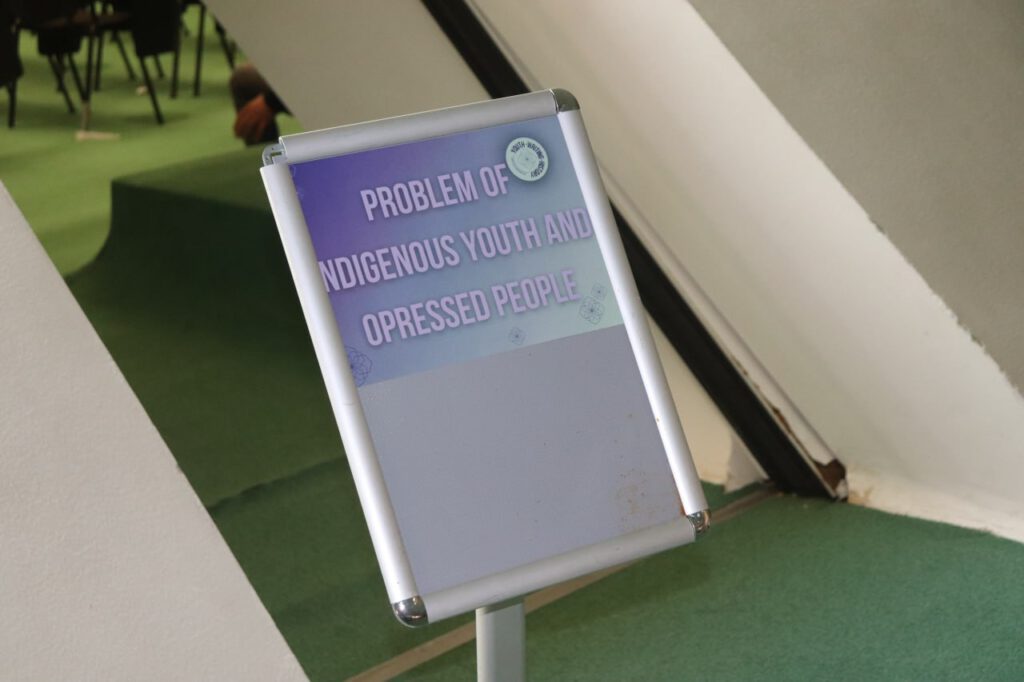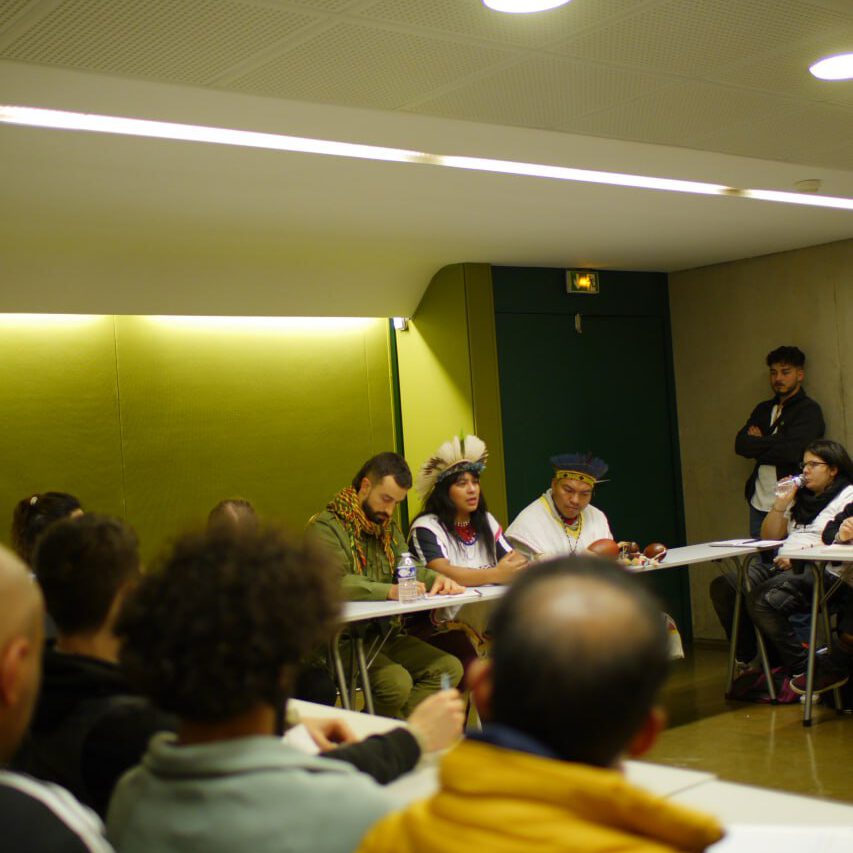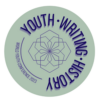
“There’s a dialectic relation between the river and my life.
–
Life is what we see and what we don’t see“
The discussion centered around two perspectives from Abya Yala (Americas) -Mapuche and CRIC – and was opened by the Mapuche comrades. The Mapuche people divided between Argentina and Chile have been able to resist spanish colonisation scince its arrival. It began in 1492 with the extractive objective to transform the Abya Yala territories into commodities. Over the centuries the oppression has manifested in many ways, from forced assimilation to brutal violence, to the systematic marginalization and stigmatization of indigenous people. Today the struggle of the Mapuche people, who historically won the war against the spaniards to defend their land and the Consejo Regional Indigena del Cauca (CRIC) which is the indigenous organisation in Colombia, rely on the knowledge of the elders and the concept of „El Buen Vivir“(The Good Life): a way of life connected to nature and to one’s ancestral land. Both the Mapuche people and the CRIC have developed over the years self-organised health and education systems, to resist the colonial and imperialist oppression and recuperate the stolen land. And in the case of the Mapuche people self-defence structures, too.
In 1850, the Chilean state attacked the Mapuche people, grabbing the majority of their ancestral land, which shrank from 10 milion hectares to only 5.000. Over the years, the state continued to use education and religion to deepen their domination over the Mapuche even further.
The CRIC is an indigenous movement organized in a regional indigenous council, that includes 139 communities and a total of 400.000 people involved. The leadership is held by the council of elders who have the strongest connection with the community history and identity and the most extensive knowledge of the community by-laws. As the friend from CRIC pointed out, having an autonomous governance system has been essential in their struggle to build a strong self-defence against the various state attacks they face, from violent repression to forced assimilation into the nationalist colombian identity.
In Wallmapu (Mapucha Land) originating from the same urgent need to respond to the Chilenian state’s violent repression and expropriation of land the communities created a mouvement for self-defense in the 90s. As a consequence of this decision, political repression, state-sponsored killings and the militarization of their territory increased. In the last few decades, the state has renewed its strategy and additionally grabs land through neoliberal policies and turns it into monocultural fields. Obviously this has been leading to a severe erosion of the land’s soil and, as a consequence, to a profound disruption of the ecological equilibrium in the region.
“Before they called us barbarians, now they call us terrorists”

The CRIC comrade continued discussing how the colombian state funds paramilitary groups that defend the interests of big land owners and corporations.
Moving to analyzing Colombia’s current political situation, the comrade explained that following the recent establishment of the first colombian progressive goverment, there has been a division and de-mobilization within the social mouvements. The radical changes that were promised by the goverment during their election campaign and anything of the radical changes that were being asked in the protests are forgotten. In response to all the violence of the uprising in 2019, and with the perspective of achieving peace without fighting violence with more violence, the CRIC has decided to adopt now a non-armed approached to their struggle.
“The priority is to get back to our land, because the occupation of our territory also means a destruction of a way of life.“
As both comrades reminded everyone, the long history of their communities hasn’t been just one of violence and domination, but it has been also one of great resistance. A lot has been achieved and created through this long-standing struggle. The CRIC has, in fact, developed their own autonomous structure for health and education, based on the principles of El Buen Vivir. The priority is to defend the language, defend the culture and create indigenous teachers.
“Education needs to be localized for every territory with the objective of being able to live outside capitalism and the state, as well as in harmony with nature.”
